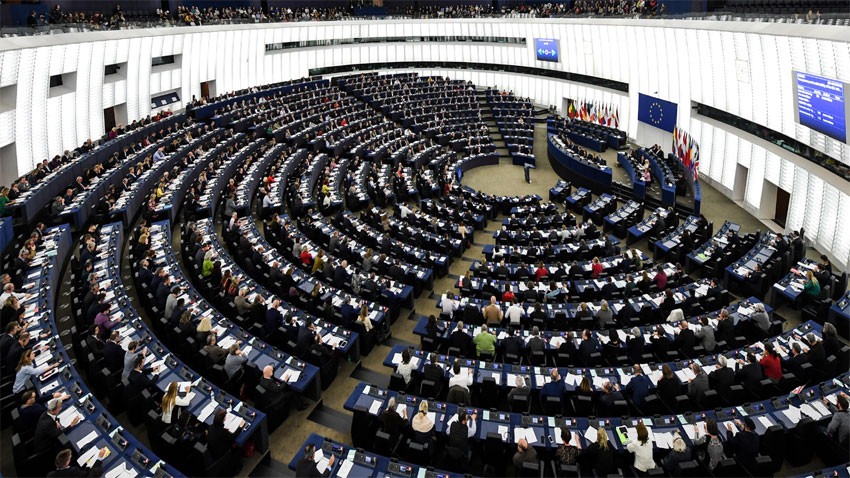
On 11 December the European Parliament approved, by an overwhelming majority - 514 “for”, 107 “against” and 38 “abstained” – a resolution for the accession of Bulgaria and Romania to Schengen. This is, in fact, the fifth such European Parliament call in quite a number of years.
As previously, the MEPs acknowledge the fact that the two countries have met the technical criteria for entry into the Schengen area. Unlike before, the overwhelming majority in the EP thinks that the phasing out of border control – first checks at internal sea and air borders, then checks along internal land borders – is unacceptable because it entails a number of risks and could have a negative impact on the future enlargement of the Schengen area. According to the MEPs, the protracted deferral of the full accession of Bulgaria and Romania to the Schengen area has already had an adverse effect on the two countries, but also on the EU as a whole.
Yet there was no representative of the EU Council present at the debates in the European Parliament, even though the enlargement of the Schengen area is up to that particular body. It is a decision the Council can only make by consensus, and the results of the vote of the resolution show there is no consensus within the EP either. As dramatic events unfold surrounding Brexit, the enlargement of the Schengen area is not a hot item on the EU’s agenda by far. And it is highly unlikely this will happen now that the term of office of the current European Commission, and of most other European institutions, is drawing to an end. In this sense, the debates at the European Parliament on enlarging the Schengen area with Bulgaria and Romania should probably be regarded more as an element of the European Parliament elections campaign. The fact that the EP draft resolution was authored by the President of the Party of European Socialists Sergei Stanishev is suggestive of just such a thing; his comments of GERB’s coalition government have been critical, GERB being from the European People’s Party.
It is probably for all of these reasons that this latest, fifth call by the European Parliament for Bulgaria to be admitted to Schengen is getting a cool reception in Sofia. There is no reaction, as yet, on the Foreign Ministry’s website to yesterday’s events in Strasbourg, and in one of her last comments on the matter, in answer to a journalist’s question in June this year, Foreign Minister Ekaterina Zaharieva says that “in practice, the Schengen area is not working, it hasn’t been working for several years. It is our position that we should protect our external borders, and not wall ourselves up inside.”
Obviously, the Bulgarian government is not expecting the Bulgaria-in-Schengen predicament to be unraveled any time soon, as things now stand that seems most unlikely.
English: Milena Daynova
The GERB party has already made every possible compromise . Now it is the turn of other political forces to show statesmanship, because they are also responsible for what will happen in Bulgaria, Denitsa Sacheva, deputy leader of the GERB-SDS..
Dragomir Stoynev, an MP from the BSP-United Left coalition, told BNR that the election of the parliamentary speaker was an agreement between political forces to stabilise the political situation. On 6 December, St Nicholas' Day, the 51st National..
Greek and Turkish Cypriots call for more crossing points along the Green Line The political parties of the Greek Cypriots and the Turkish Cypriots have called on their leaders to open more crossing points along the..
"The 'Zhelyazkov' cabinet must continue to work, even as a minority government." This was GERB leader Boyko Borissov's comment on the Constitutional..
Calin Georgescu to run for President of Romania Romanian police seized weapons and large sums of money in the investigation against pro-Russian..

+359 2 9336 661
